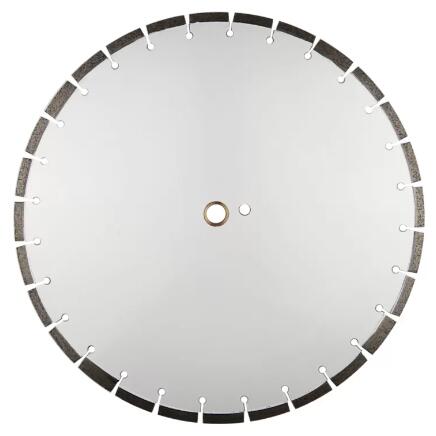How long will a diamond blade last?
The lifespan of a diamond blade, commonly used for cutting various hard materials like concrete, asphalt, and stone, depends on several factors, including the type of blade, the material being cut, operating conditions, and the user's maintenance practices. Generally, diamond blades are known for their durability and extended life compared to conventional abrasive blades. Here are the key factors influencing the lifespan of a diamond blade:
Blade Type: The type of diamond blade matters. There are segmented blades, continuous rim blades, turbo blades, and more. Segmented blades, for example, tend to have a longer life due to the space between the segments that allows for more effective cooling during the cutting process.
Material Being Cut: The hardness and abrasiveness of the material being cut are crucial. Softer materials like asphalt and green concrete are less abrasive on the blade and result in a longer blade life. Hard materials like granite or cured concrete can wear down the blade faster.
Blade Quality: The quality of the diamond blade is significant. High-quality blades with better diamond grit and bonding will generally last longer. Cheaper, lower-quality blades may wear out quickly.

Operating Conditions: The cutting speed and operating conditions can impact the blade's life. Using the correct blade for the specific application and ensuring the blade is properly lubricated or water-cooled can extend its lifespan. Excessive heat generated during cutting can reduce blade life.
Proper Technique: The skill of the operator plays a crucial role. Using the right cutting technique, maintaining a consistent speed, and not forcing the blade can prolong its life. Applying too much pressure or making rough cuts can wear the blade prematurely.
Maintenance: Regular maintenance and cleaning of the SAW blade can help extend its lifespan. Removing debris and ensuring that the diamond segments remain exposed and sharp are essential.
Frequency of Use: Blades that are used frequently may wear out faster. It's important to monitor the blade's condition and replace it when it becomes too worn to ensure safety and cutting efficiency.
Size of Blade: The diameter of the blade can influence its lifespan. Larger blades tend to last longer because they have more diamond cutting segments.
In practice, the lifespan of a diamond blade can vary widely. It may range from a few hours of continuous cutting for very abrasive materials to several days or even weeks for less abrasive ones. Properly maintained, high-quality blades used in the right conditions can often provide a significant return on investment and minimize the need for frequent blade replacement.
It's important to monitor the blade's condition and replace it when it shows signs of wear, such as reduced cutting efficiency or diamond segments wearing down. Regular inspections and maintenance ensure safe and effective cutting operations while optimizing the blade's useful life.



